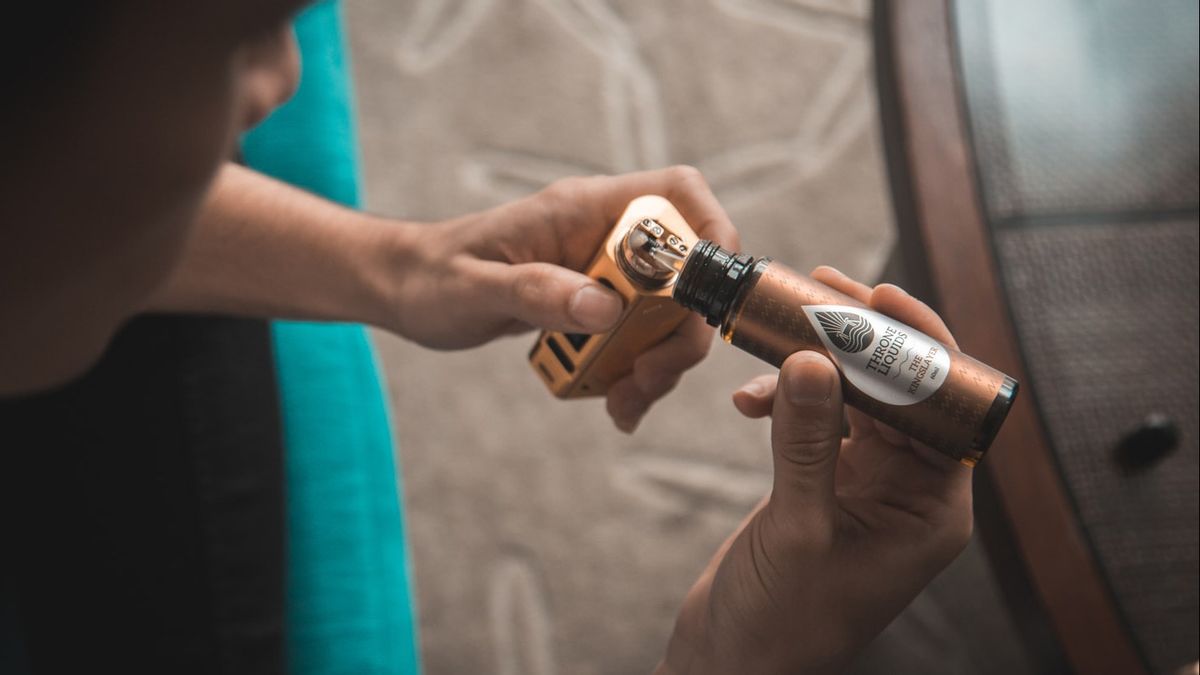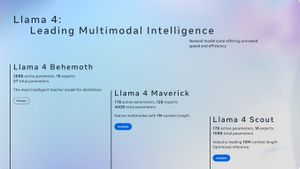JAKARTA - For some smokers, switching to alternative tobacco products such as e-cigarettes is one way to reduce health risks. They understand that based on some existing research, e-cigarettes are a better alternative to cigarettes and can be an effort to stop smoking.
However, e-cigarettes, which are categorized as Other Tobacco Processing Products (HPTL) in Indonesia, are considered relatively expensive for some people. Consumers have to spend deep enough to be able to use this product.
As an illustration, the average price of e-cigarette liquid, aka liquid vape, in Indonesia ranges from IDR 100,000 to IDR 250,000 per bottle. Meanwhile, electric cigarette equipment is sold with a price range of Rp. 100,000-Rp. 3 million depending on the brand and quality.
Ilham Riski (32), owner of a laundry chain in Jakarta who has been an active smoker for years, said he sticks with conventional cigarettes because they tend to be cheaper.
"I want to (switch) to alternative tobacco products such as vape, because there has been research abroad that says this product is a lower risk than continuing to smoke, but the initial cost is very high," he said in a statement received by VOI, Saturday, February 8.
In line with Ilham, Ferdi Hasan (30), a private employee based in Jalan Jenderal Sudirman, Central Jakarta, was actually tempted to switch to e-cigarettes as his friend had done.
His interest is because since using e-cigarettes, some of his friends have been able to reduce cigarette consumption. "Apart from health factors, smoking areas (in office areas) are getting more and more difficult, so I have to find better alternatives," he said.
According to Ferdi, so that conventional cigarette users want to switch to e-cigarettes, the price of e-cigarettes should not be too expensive. Moreover, e-cigarettes are claimed to be lower in risk. "The government should set prices that fit in the pockets of society in general, not only for certain groups," said Ferdi.
Currently, the retail selling price (HJE) of e-cigarettes is regulated in the Minister of Finance Regulation Number 156 / PMK.010 / 2018 concerning Tobacco Excise Tariffs. Under the regulation, e-cigarettes that are included in the HPTL category are subject to a maximum excise tariff based on the Excise Law, which is 57 percent of HJE.
At the end of 2019, the Director General of Customs and Excise, Heru Pambudi revealed his plan to increase the HJE for e-cigarettes following the increase in excise experienced by cigarettes. This is of course contrary to the aspirations of adult smokers.
Customs through the Director of Engineering and Customs and Excise Facilities, Nirwala Dwi Heryanto, revealed that of the total IHT excise revenue, the HPTL industry only contributed IDR 426.6 billion or less than 1 percent.
"For a sector that has just been subject to excise, and added new business actors, this gain is quite significant amid the difficulty in pumping up revenue from taxation in general," said Nirwala.
Indeed, access to better alternative products is the right of every individual. However, due to price constraints, making choices for each individual is limited.
Chairman and Founder of the Foundation for International Human Rights Reporting Standards (FIHRRST) Marzuki Darusman emphasized that today's business world continues to make various efforts to reduce health risks through innovations. This was done in order to face a better future.
Alternative tobacco products such as e-cigarettes are an innovation aimed at reducing health risks arising from smoking. "Every individual should at least be aware of their right to information and their right to benefit from scientific progress," he said.
He also reminded business actors not only to wait for the government to issue laws and regulations designed to protect customers. Instead, they must be proactive in informing the public about scientific innovations that have the potential to reduce harm to their health.
"Business actors must actively inform the public about scientific innovations that may be less harmful to their health. Apart from that, the government also needs to carry out an in-depth scientific study of this product so that people can get valid and easier to understand information, "said Marzuki.
The English, Chinese, Japanese, Arabic, and French versions are automatically generated by the AI. So there may still be inaccuracies in translating, please always see Indonesian as our main language. (system supported by DigitalSiber.id)









